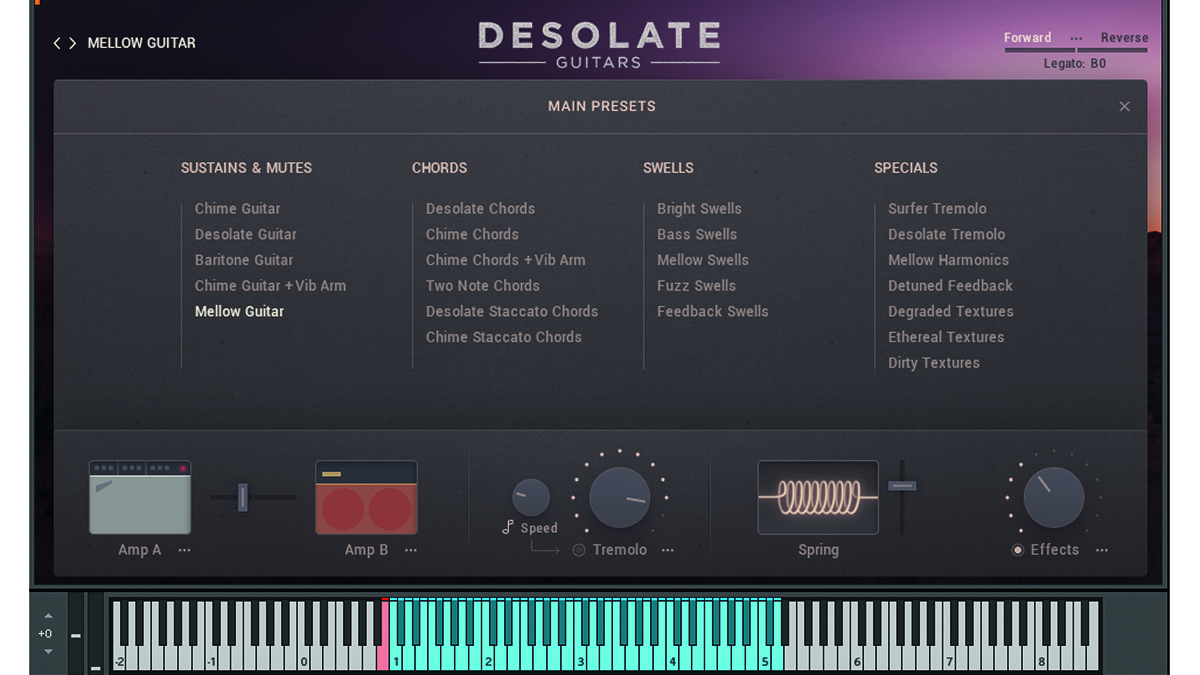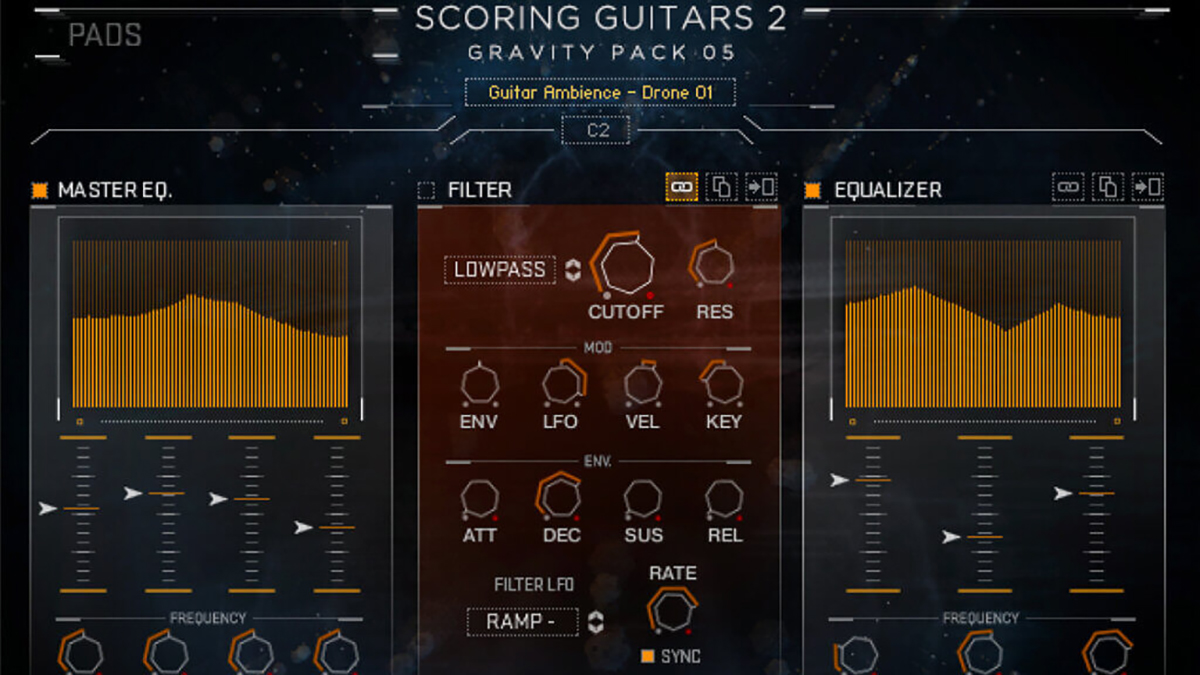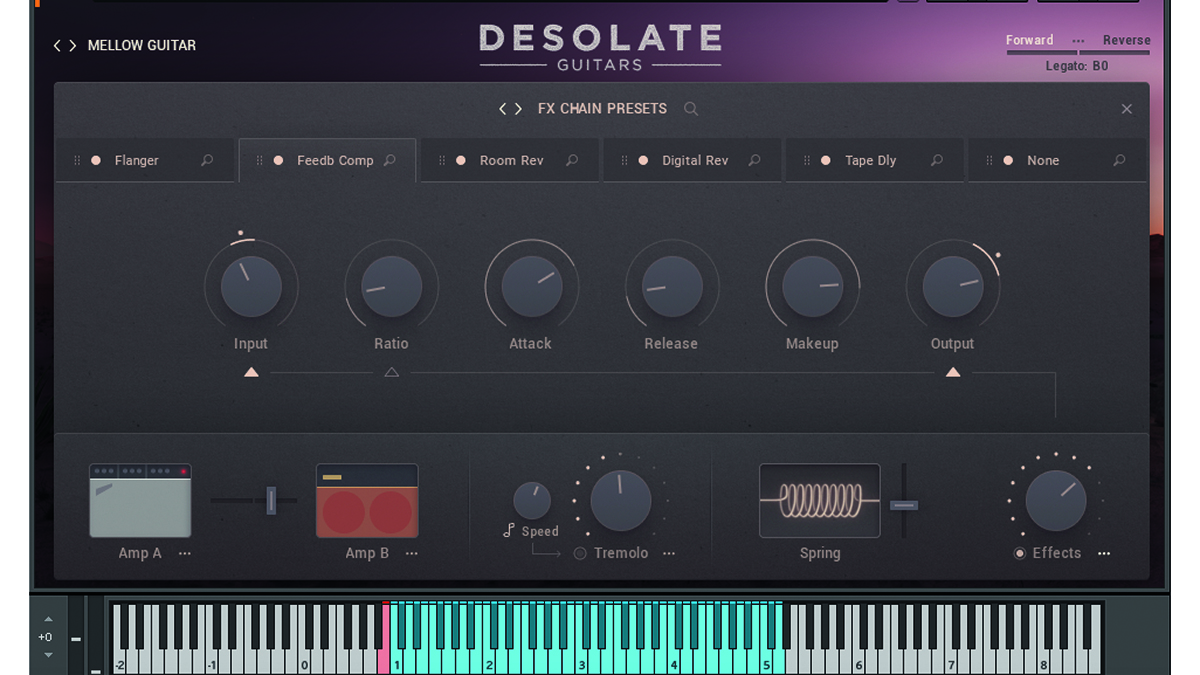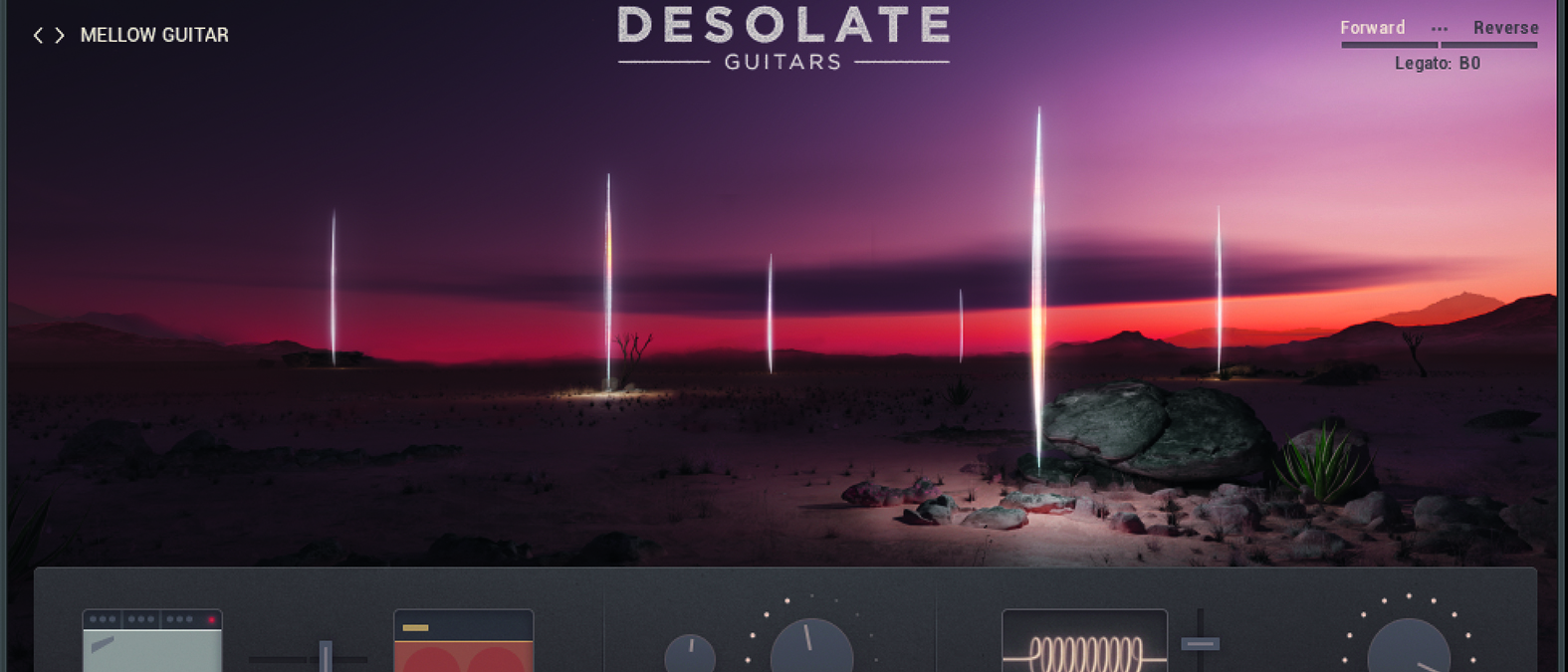MusicRadar Verdict
Desolate Guitars might well be the library we turn to for inspiration for the foreseeable future. Never has the guitar sounded so good.
Pros
- +
Lovely atmospheric guitar sounds.
- +
The limited number of options actually makes it more attractive to explore.
- +
Lovely effects section.
- +
Superb recordings.
Cons
- -
We had a few crashes, but these were fixed in an update.
MusicRadar's got your back
E-instruments Desolate Guitars: What is it?
Intel Macs (i5 or higher): macOS 11, 12 or 13 (latest update).
Apple Silicon Macs (via Rosetta 2 & natively on ARM in Standalone or in hosts that support it): macOS 11, 12 or 13 (latest update).
Windows: 10 or 11 (latest Service Pack), Intel Core i5 or equivalent CPU, 2GB RAM.
Supported formats: macOS (64-bit only): Standalone, VST3, AU, AAX. Windows (64-bit only): Standalone, VST3, AAX.
Buy at Plugin Boutique
Desolate Guitars is weird Americana guitar – David Lynch at his best – or the deepest shoegaze, post-rock ambience you can feel, all in an easy-to-use Kontakt package. It is both very specific and very expansive, both a soundtrack to a desolate, cold, post humanity sci-fi time, and an emotive, warm atmospheric and optimistic future. And all of it’s been wrought from four guitars.
We never thought we’d open a review with a conclusion, but that’s kind of what we have done. That’s because Desolate Guitars makes you rethink your music at every turn.

E-instruments Desolate Guitars: Performance and verdict
And the deception starts as soon as you open up Desolate Guitars, because you might not expect very much, as it all looks just a bit too simple. Sure the artwork is amazing – that weird, main image just about sums up everything DG is about – but on screen all you have are a couple of amps to play with, a Tremolo dial (with Speed knob), a Spring reverb effect and an Effects dial. On top of the Kontakt keyboard, that’s it.

• Heavyocity Scoring Guitars 2
Perhaps more ethereal, this focuses on drones, pulses and pads.
• Spitfire Audio Ambient Guitars
Spitfire enlisted renowned guitarist Leo Abrahams for this library but it is pretty expensive.
Then there’s the presets, such as they are. 23 grouped over four different banks. You’re kidding right? However, luckily we took note of the download size – this library is a not inconsiderable 34GB in girth, so there must be something at play here behind this admittedly great looking but very simple screen, right?
Yes. There is.
Just like the best David Lynch film, all is not what it seems with Desolate Guitars. You start with four guitars on the left. Call them ‘presets’ if you like, but e-instruments labels them ‘starting points’ or ‘snapshots’ instead, because that’s the secret, which we’ll come to. And thanks to E-instruments’ exquisite recording of every amp and effect combo and every eventuality – OK, within a fairly narrow ‘atmospheric guitar remit’ – this thing sounds incredible. It’s important to stress here that very little (just the Tremolo section) is emulated or modelled; the lion’s share of sounds were captured as a studio sample, hence the download size.
The four guitars, Chime, Desolate, Baritone and Mellow, can be your full instruments and sound beautiful on their own without effects. But take them through the Tremolo and Spring reverb and you’re suddenly transported to desolation or jubilation. The rest of the few presets are then examples of what happens if you use said guitars as chords, swells and textures using the visible effects and – this is the crux of DG, really – a bank of hidden effects (see box, right). Once you bring these in, you suddenly get the point of DG. This isn’t just about those initial guitars, as good as they are; it’s about where you take them and what you can do with them. These few presets really are ‘starting points’, designed to start you on that journey, to catapult you into whichever film soundtrack you like.
Want all the hottest music and gear news, reviews, deals, features and more, direct to your inbox? Sign up here.
This isn’t just about those initial guitars, it’s about where you take them and what you can do with them
But there’s more. As we said, many effect and audio routing combinations have all been recorded by E-instruments, but so have different velocity layers for nuanced playing. But the real bonuses are the mod-wheel transition effects and the odd key switch, which can bring in reverse sounds, tremolo, legato and, with the chords, transitions from major to minor. Simply push the mod wheel up to transition between one and another and you suddenly have a new dimension in your playing. Get some automation in, and this is a sound design dream.

The ‘secret’ Desolate Guitar effects
The main UI in Desolate Guitars shows the stripped down setup, which can take your guitar sound on wild journeys as is. But the not so well-hidden feature in the library is the effects section, brought into play by hitting the three dot button next to the Effects dial on the right-hand side. Here you open up the main effects chain controlled by that large Effects dial, and it’s a super flexible and great-sounding set of tools to sculpt your sound with.
Click on the search icon in each tab and you can choose from five delays (including Tape and Diffusion); four Reverb (like Hall and Algorithmic); four Dynamics (three compressors and a limiter); five Tone (filters and EQs); and finally four Modulation (including Tape Flutter and Phaser). The Spring Reverb and Tremolo are probably still worthy of being on the main UI on their own, but this group of six is not far behind. These effects can take the already amazing DG sound into even wilder, and more ambient territories.
Desolate times?
As we started with a conclusion, maybe we should finish with an intro, but we’ll conclude some more anyway! Desolate Guitars won’t be for everyone – but what Kontakt instrument is? The best of these libraries aims at a niche and fills it, but the best of the best brims over the niche into other areas and Desolate Guitars does just that. If you’d always yearned for atmospheric ‘proper’ guitar but lacked the playing skills and banks of effects, this is it.
MusicRadar verdict: Desolate Guitars might well be the library we turn to for inspiration for the foreseeable future. Never has the guitar sounded so good.
E-instruments Desolate Guitars: Hands-on demos
e-instruments
Production Expert
HIFIMIDI
Simeon Amburgey
E-instruments Desolate Guitars: Specifications
- Intel Macs (i5 or higher): macOS 11, 12 or 13 (latest update).
- Apple Silicon Macs (via Rosetta 2 & natively on ARM in Standalone or in hosts that support it): macOS 11, 12 or 13 (latest update).
- Windows 10 or 11 (latest Service Pack), Intel Core i5 or equivalent CPU, 2GB RAM.
- Supported formats: macOS (64-bit only): Standalone, VST3, AU, AAX. Windows (64-bit only): Standalone, VST3, AAX.
- CONTACT: E-instruments
Andy has been writing about music production and technology for 30 years having started out on Music Technology magazine back in 1992. He has edited the magazines Future Music, Keyboard Review, MusicTech and Computer Music, which he helped launch back in 1998. He owns way too many synthesizers.




